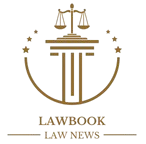Two ‘anti-woke’ candidates added to the Ontario law society board
Howard Levitt, an employment lawyer and Financial Post columnist, and Ryan Alford, a Lakehead law professor, will join the board after two spots opened up

Article content
A slate of candidates who positioned themselves as “anti-woke” standard bearers were shut out in the recent Law Society of Ontario election — but two members of that group have since been chosen to join the board of directors.
Advertisements 2
Article content
Howard Levitt, a legal columnist for the Financial Post and an employment lawyer in Toronto, and Ryan Alford, a law professor at Lakehead University in Thunder Bay, Ont., will join the board after two positions opened up again following the election.
“What most concerned me, or at least as much as the anti-woke, was the creep,” said Levitt. “I think the law society has an important role to regulate competence and protect the public from miscreant lawyers — and that’s really, in my view, all it should be doing.”
When the results of the election to the “bencher” positions were announced last week, the FullStop slate — whose tagline was “stop bloat, stop creep, stop woke” — were wiped out by the competing Good Governance Coalition.
Article content
Advertisements 3
Article content
The election had become a microcosm of the culture wars, with lawyers feuding over the role of the law society not just in professional regulation, but in its approach to equity, diversity and inclusion, and other issues that some lawyers felt were too “woke. ”
“There are legitimate differences of opinion within the legal profession as to how the law society should interpret its mandate to regulate the legal profession,” said Alford. “And I think that it’s just really important that we continue to view that as something upon which reasonable people can disagree.”
Two administrative moves opened up positions on the board, which is composed of 40 lawyers, five paralegals, and eight members of the public who are appointed by the provincial government. Alford became a bencher when Jacqueline Horvat assumed the position of treasurer, opening a spot for a non-Toronto bencher.
Advertisements 4
Article content
And Levitt became a bench when Julia Shin Doi was appointed to become a justice of the Superior Court of Ontario. That opened up a spot for a new bencher within Toronto, and since Levitt had the most votes, he received the position.
“Primarily we’re going to serve as a reminder that there isn’t a complete unanimity of opinion within the legal profession,” said Alford. “The only attention was on the points of agreement. But something that I tried to do during the campaign was to stress the many points of agreement.”
Levitt sees opportunities to continue pushing topics that are important to him and the other anti-woke, anti-creep, anti-bloat candidates, even though the Good Governance benchers greatly outnumbered himself and Alford.
Advertisements 5
Article content
“That doesn’t mean that everybody who runs the Good Governance slate is necessarily pro-woke, so we might have some support there that’s unheralded at this point,” said Levitt.
The attempts to limit the bloat and mission creep may yet see success.
There are hundreds of employees at the law society, said Levitt, and he believes this is the sort of staffing size that leads to an expansion of the law society’s mission.
“When they have 550 employees, (they find) lots of things to do with their time. And I don’t know that other members of the Good Governance slate won’t agree with that,” said Levitt. “The woke nonsense is just one part where it’s gone off mission.”
Another issue Levitt wants to tackle is the size of the fees lawyers pay to the law society each year. They must pay $1,981 annually, plus HST, for a grand total of $2,238.53. If, Levitt argues, they can go through the budget line by line and try to limit spending, they might be able to cut fees.
Advertisements 6
Article content
“It isn’t much for lawyers in the big firms in downtown Toronto, it isn’t much for any lawyer who’s doing quite well,” said Levitt.
But, he said, it is for many others.
The issues where there could be success, Levitt said, are those that the election wasn’t fought over, such as reforming the bar admission course or improving access to justice.
But, he says, he’ll still speak his mind when topics on diversity, equity and inclusion come up, and push for more transparency in meetings so that the profession at large can see what’s going on.
“I’ve reached a point in my career — I’ve been practicing for 44 years — that I’m focused more on giving back,” said Levitt.
• Email: [email protected] | Twitter: tylerrdawson
-

‘Anti-woke’ group loses elections at Law Society of Ontario
-

Does UCP leader Danielle Smith have a tattoo of a right-wing think tank? Not really

Comments
Postmedia is committed to maintaining a lively but civil forum for discussion and encourages all readers to share their views on our articles. Comments may take up to an hour for moderation before appearing on the site. We ask you to keep your comments relevant and respectful. We have enabled email notifications—you will now receive an email if you receive a reply to your comment, there is an update to a comment thread you follow or if a user you follow comments. Visit our Community Guidelines for more information and details on how to adjust your email settings.
Join the Conversation